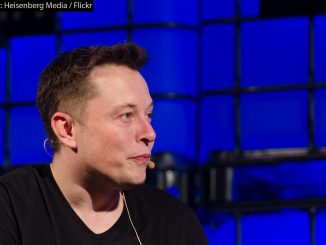
A consortium of banks, spearheaded by Morgan Stanley (MS), is actively seeking to offload up to $3 billion of senior debt associated with Elon Musk’s acquisition of X, the reimagined social media platform once known as Twitter. This move, as reported by Bloomberg, signals the banks’ latest attempt to alleviate the burden of the $13 billion in debt that has lingered on their balance sheets since Musk’s unexpected takeover bid in 2022.
The banks have discreetly approached potential investors, gauging interest in purchasing debt chunks of at least $250 million at a discount, offering between 90 to 95 cents on the dollar, said the report. This strategy is set to commence possibly as early as next week, highlighting a strategic retreat from the risky exposure these banks faced due to Musk’s acquisition.
This effort follows a partial success where approximately $1 billion of debt was sold to multiple investors in a private transaction. However, the banks plan to retain the more junior, riskier debt portions for the time being, indicating a cautious approach to managing the fallout from what has been described as one of the most challenging buyout financings since the financial crisis.
The backdrop to this scenario is the broader context of Wall Street’s struggle with acquisition debt. In 2022, banks found themselves holding onto roughly $40 billion in debt from deals underwritten during a period of low interest rates, only for the Federal Reserve to shift gears with rate hikes, making these holdings less attractive.
Musk’s acquisition of Twitter was fraught with complications, including his initial attempt to back out of the deal, which led to a judicial mandate to proceed. Post-acquisition, Musk’s strategic overhaul of the company — including rebranding to X, significant layoffs, and a push towards free speech — has not been without controversy, particularly affecting advertiser confidence and thus the company’s revenue streams.
The report notes that the financial restructuring Musk implemented has dramatically increased X’s debt burden, escalating its annual interest expense from about $50 million to over $1 billion. This financial strain has been a concern for banks, who are now looking for signs that Musk’s vision for X can justify such costs.
Recent developments, however, might offer some respite. Musk’s elevated status in political circles, particularly his role in Trump’s administration, has sparked renewed optimism about his business ventures. This, coupled with a more favorable tone in the debt markets eager for fresh deals post a lull in M&A activity, could facilitate the banks’ efforts to offload this debt.
The original financing for the buyout was structured into three segments: a significant portion intended as senior secured leveraged loans, and two tranches of high-yield bonds, both secured and unsecured. According to B’berg, Musk and his co-investors contributed $33.5 billion in equity to complete the privatization, highlighting the scale and complexity of the financial maneuvers involved in this acquisition.
This situation underscores the challenges and strategic considerations banks face when dealing with high-profile, high-risk financing deals in an era of shifting economic policies and corporate transformations.
WallStreetPit does not provide investment advice. All rights reserved.
- Bulenox: Get 45% to 91% OFF ... Use Discount Code: UNO
- Risk Our Money Not Yours | Get 50% to 90% OFF ... Use Discount Code: MMBVBKSM
Disclaimer: This page contains affiliate links. If you choose to make a purchase after clicking a link, we may receive a commission at no additional cost to you. Thank you for your support!




Leave a Reply